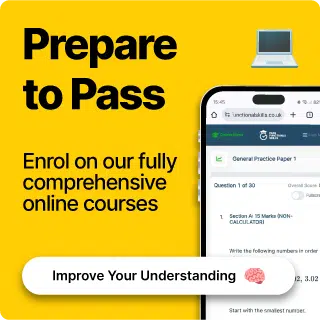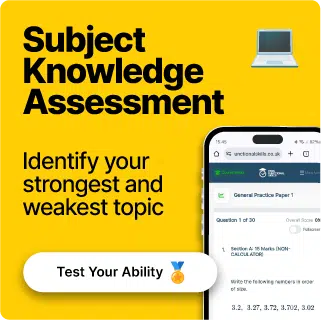Writing: Grammar
Grammar
You will learn here about:
- Basic sentence structure and the importance of sentence length
- The indefinite and the definite articles
- Modal verbs and their uses
- The use of compound sentences and paragraphs
Make sure you are happy with the following topics before continuing:
Sentence Structure
Golden Rule No.1
Full, grammatically correct sentences are needed in your writing
This means that they need to make sense by themselves, and are begun with a capital letter, and ended with a full stop.
Golden Rule No.2
Sentences will need a verb – an ‘action‘ word
These show what is happening, for example, ‘she was humming’, ‘they are cooking’, ‘we flew’…
Golden Rule No.3
Sentences need a subject – something/someone ‘doing‘ the verb
The subject is also called the ‘noun‘, and can be a person, place, or thing, or: the chef, the kitchen, the meal.


For Example:
‘The man jogged‘
‘The man‘ is the subject
(the noun)
…as he is doing the ‘jogging‘
(the verb)
Follow Our Socials
Our Facebook page can put you in touch with other students of your course for revision and community support. Alternatively, you can find us on Instagram or TikTok where we're always sharing revision tips for all our courses.
Sentence Length
Sentences have to be the right length – don’t make them too ‘waffly’ and long!
For example:
”The man walked and then jogged and then he was out of breath.”
This sentence would be improved by splitting it in two:
”The man walked and then jogged. He was out of breath.”
Can you see how when you read this sentence now, the break feels more natural than reading the longer version in one go?
Breaking up a sentence with punctuation mimics the way we break up speaking, with pauses and breaths, and it is just as important.
It will help the reader to properly take in what they are reading, and follow along in their head.
In turn, this makes your text more effective.
Articles
There are two forms of articles:
- Indefinite
- Definite
Articles go before nouns to either describe general or specific things.
Indefinite articles are not specific to a particular thing:
‘A‘ or ‘an‘ are the indefinite articles – ‘an’ before a vowel
Definite articles are specific to a particular thing:
‘The‘ is the definite article
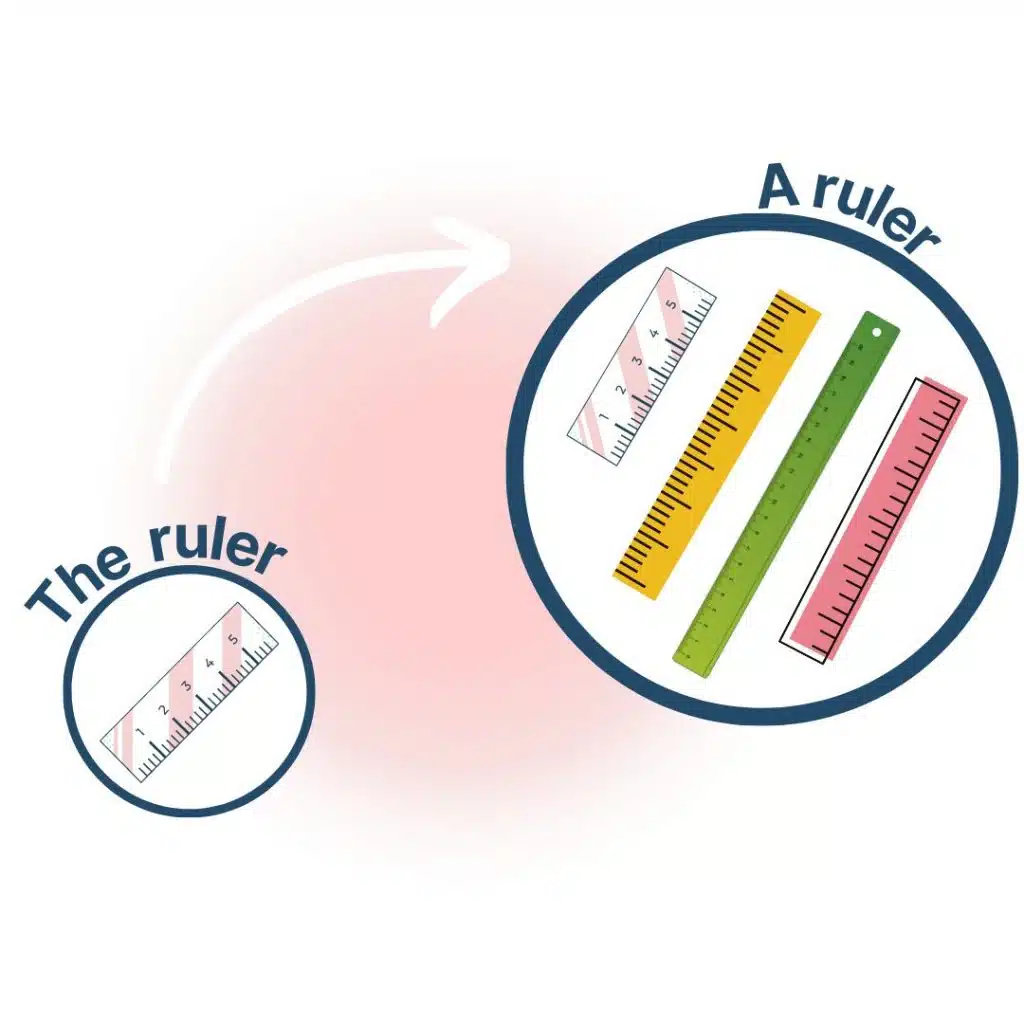

For example:
a) ‘Can I have the ruler please?‘
‘The ruler’ refers to a specific ruler that the speaker and the audience share knowledge of.
b) ‘Can I have a ruler please?‘
‘A ruler’ refers to any ruler.
Modal Verbs
Modal verbs:
- Are used to refer to likelihood, capability and necessity
- Go before the main verb
- Change the meaning of the sentence
The most common modal verbs are:
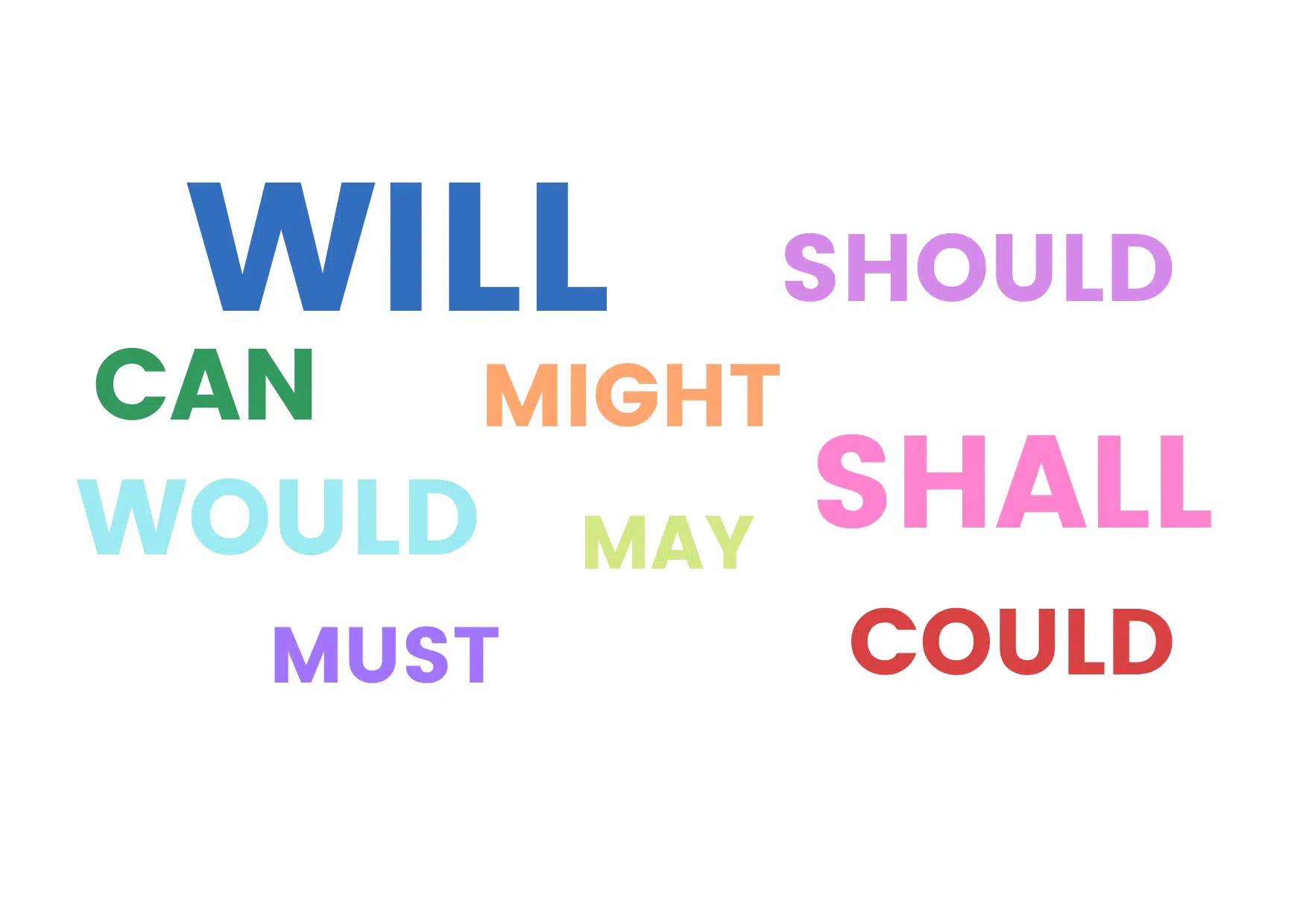
Irregular Plurals
You may need to write about more than one thing at once in your text, such as:
- a group of people
or
- the reasons why you support an idea
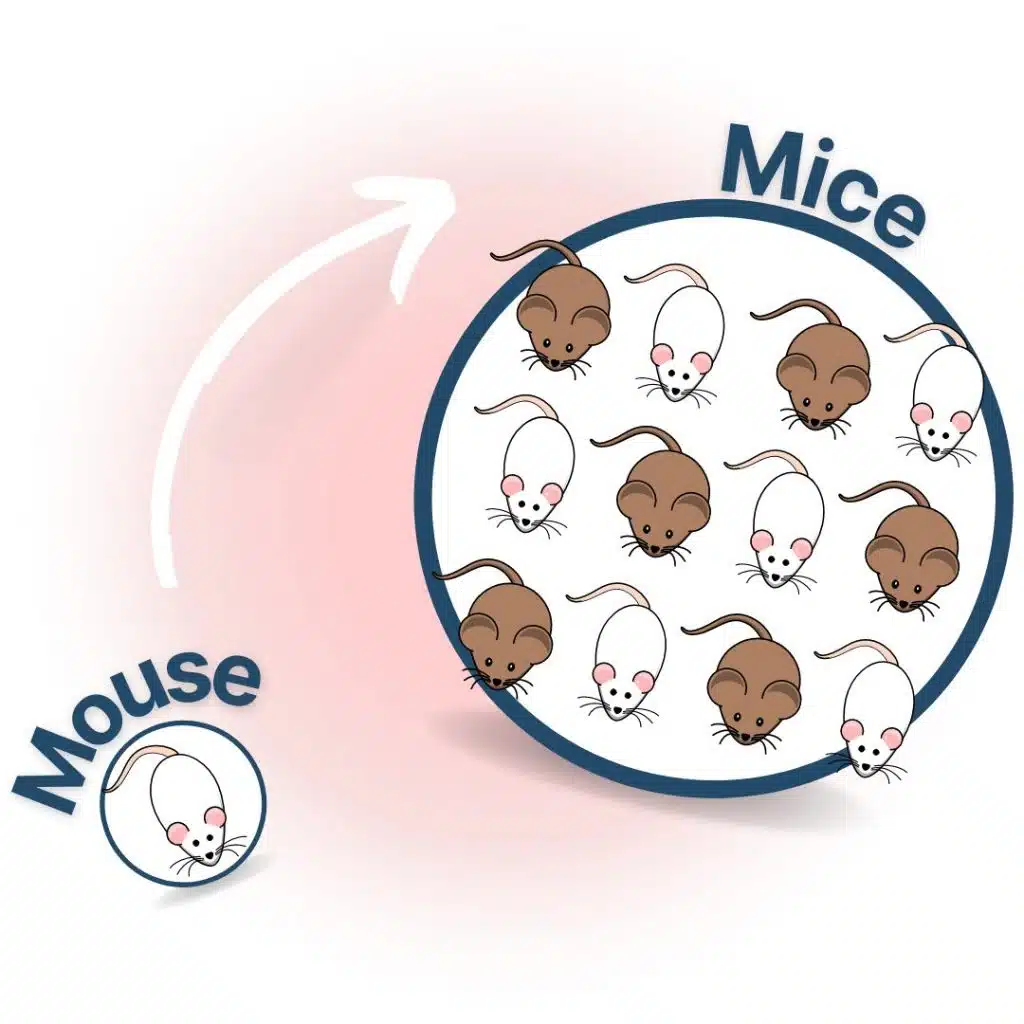

In written English, when you want to talk about one thing at a time, it is singular.
But, when you want to talk about more than one thing at a time, it is plural.
When you need to talk about plurals in your text, words have either a regular or irregular plural.
But, what does this mean?
Well…
When you add an ‘s‘ or an ‘es‘ to the end of a word to make it into a plural…
…it is a regular plural.
And…
When you change a word in a different way to make it into a plural…
…it is a irregular plural.
Have a look at these lists of regular and irregular plurals to see this pattern for yourself!
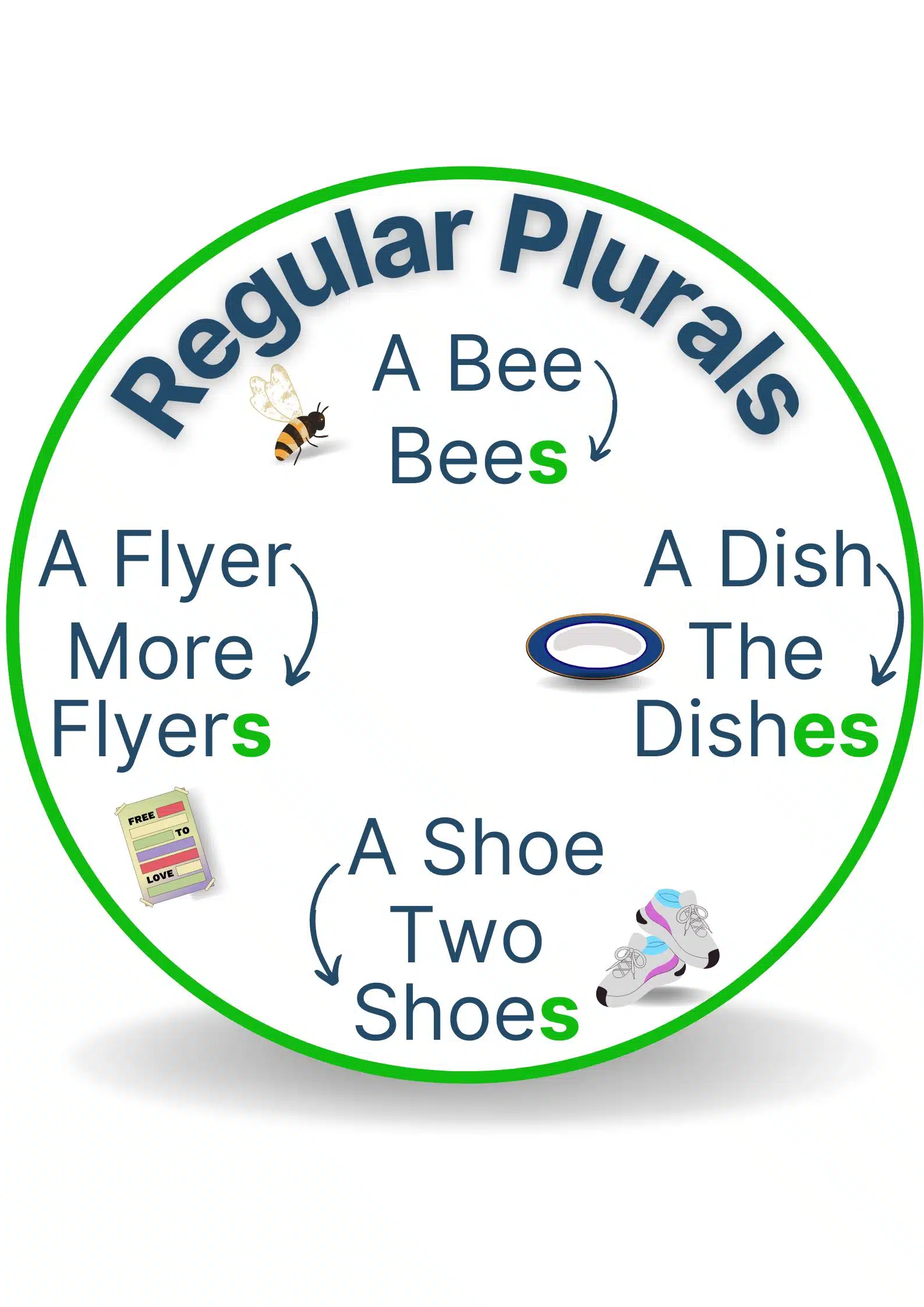
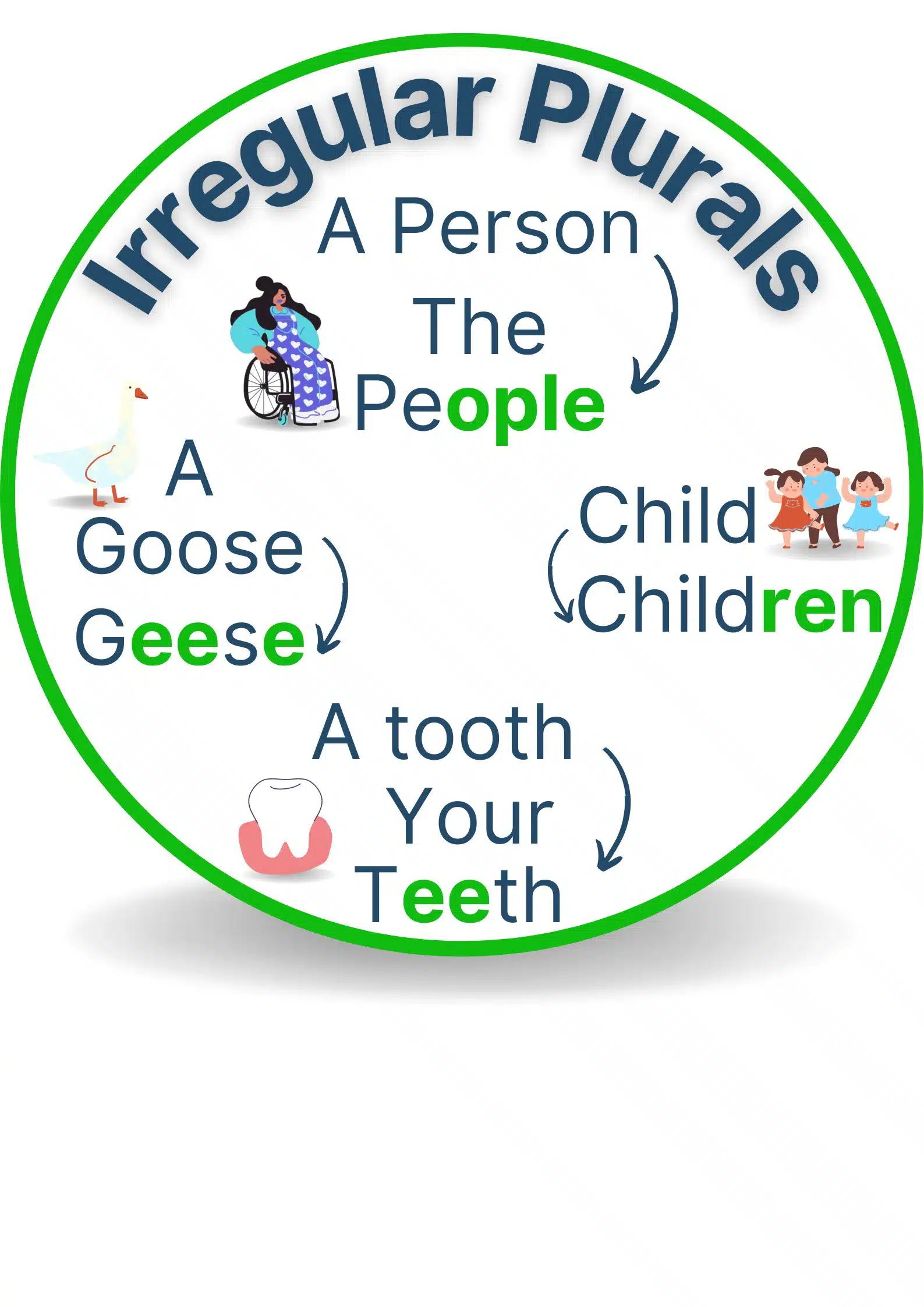
Compound Sentences
A compound sentence is a sentence that links two clauses together.
These clauses usually make sense on their own too.
These are connected by:
- Joining words such as or and but
- Either a comma or a semicolon
For example:
“We had pizza for lunch, but fajitas are my favourite food”
See how this sentence make sense on its own without the ‘but‘?
Compound sentences are useful as they allow writers to build more detail into writing. However, it is easy to get carried away with building them up!
For example:
“Katie went to the gym today before work but ended up being quite late so she went for lunch early and stayed after for a while longer then got in the car and drove home with a little bit of traffic but managed to make dinner for the kids in time.”
Try this instead:
“Katie went to the gym today before work, but she ended up being quite late. She went for lunch early and stayed for a while longer afterwards. Then, she got in the car and drove home despite a little bit of traffic, and managed to make dinner for the kids in time.”
Remember that connectives shouldn’t be used in a sentence more than twice if it can he helped.
This ensures that sentences are broken up, easy to read and make grammatical sense.
Paragraphs
A paragraph is simply a group of sentences which follow on from each other. They ensure your writing is clear.
To signify you have started a new paragraph, make sure you write on a new line.
Within your writing, make sure you give each paragraph a main point using this structure:
- The first paragraph should introduce the topic
- The second paragraph should provide additional detail
- The last paragraph should summarise the main points addressed
Within a new paragraph, make sure that you talk about a new thing, place, person or time.
Note:
When forming paragraphs, imagine that the reader is only looking at the first sentence of each paragraph and has to explain what the content is to others.
This way, you will make sure that a strong overview is provided, and that your writing is as effective as possible!
Example: Modal Verb Sentences
”The boy must do his homework.”
This sentence shows the need for the homework to be done.
”The girl might go to the party.”
This sentence shows the likelihood/possibility of the girl going to the party.
”The man can play the guitar.”
This sentence shows the ability/capability of the man to play the guitar.
Example: Paragraphing
Below is part of a homework task which was handed in for an assignment called ‘What you did over the holidays?’.
However, look closely as there should be a new paragraph in the text.
See if you can identify where it should be!

Did you get:
- Before ‘After a long journey…’?
Beginning a sentence like this usually indicates that a new paragraph is needed, as it is a new point in time and doesn’t link to the previous story.
Additional Resources
Exam Tips Cheat Sheet
FS Level 2Specification Points Covered
EL3.14 – Form irregular plurals
EL3.15 – Use mostly correct grammar (e.g. subject-verb agreement, consistent use of tense, definite and indefinite articles)
EL3.21 – Write in compound sentences and paragraphs where appropriate
L1.20 – Use correct grammar (e.g. subject-verb agreement, consistent use of different tenses, definite and indefinite articles)
L1.22 – Communicate information, ideas and opinions clearly, coherently and accurately
L2.20 – Punctuate writing correctly using a wide range of punctuation markers (e.g. colons, commas, inverted commas, apostrophes and quotation marks)
L2.21 – Use correct grammar (e.g. subject-verb agreement, consistent use of a range of tenses, definite and indefinite articles) and modality devices (e.g. to express probability or desirability)
L2.23 – Communicate information, ideas and opinions clearly, coherently and effectively
L2.28 – Construct complex sentences consistently and accurately, using paragraphs where appropriate
Writing: Grammar Worksheet and Example Questions
Writing: Grammar L2
FS Level 2NewOfficial PFSWriting: Grammar L1
FS Level 2NewOfficial PFSRevision Products
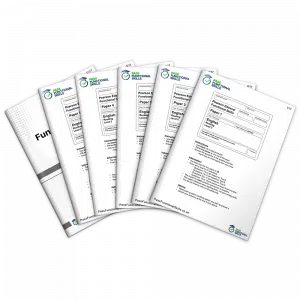
Functional Skills English Level 2 Practice Papers
This comprehensive set of 10 Functional Skills English Level 2 Practice Papers (5 reading papers + 5 writing) is a great way to revise for your upcoming reading and writing exams. These papers have been specifically tailored to match the structure, format and question types used by each of the main exam boards for functional skills English.
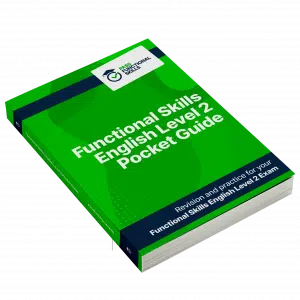
Functional Skills English Level 2 Book
Revise and practice for your functional skills English level 2 exam. All topics covered in this compact functional skills English level 2 book.
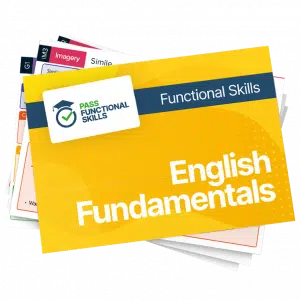
Functional Skills English Level 2 Revision Cards
Revise for functional skills English level 2, with these English level 2 fundamentals revision cards. Covering the building blocks of the essential areas of the level 2 exam.

